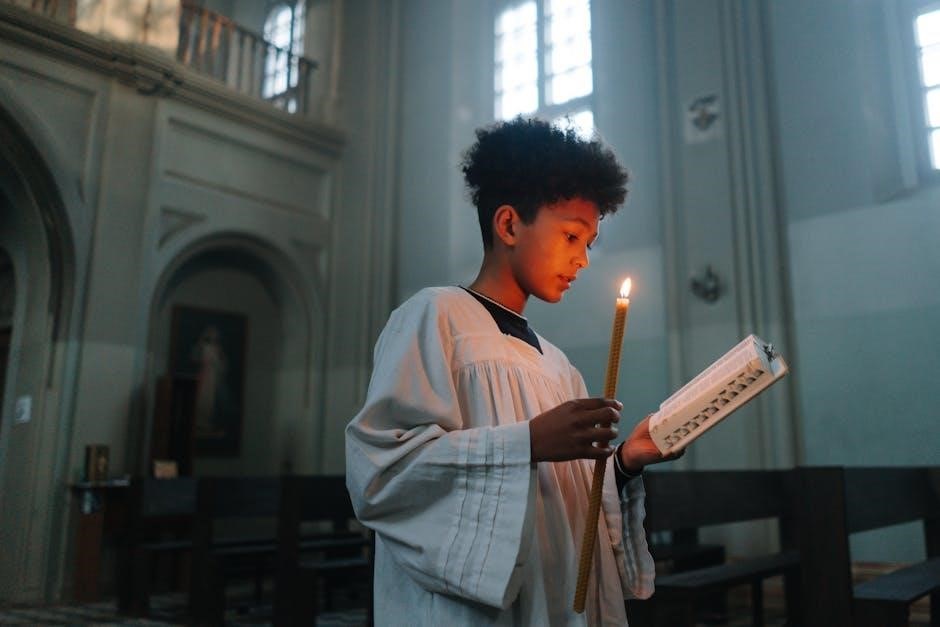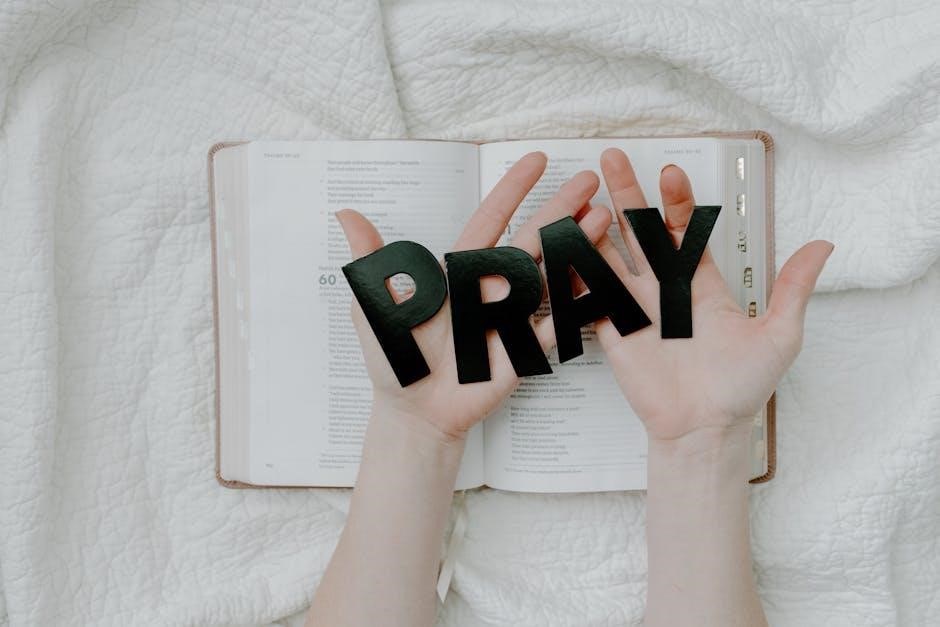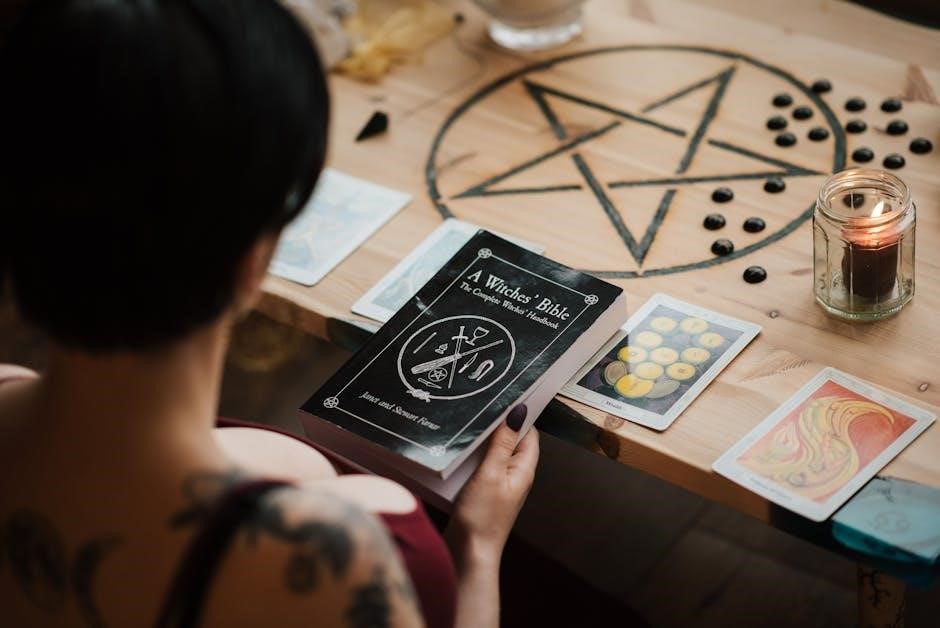History and Significance of Prince Hall Freemasonry
Prince Hall Freemasonry, founded in 1775, is the oldest recognized African American fraternal organization, emphasizing brotherhood, charity, and moral development. Its historical significance lies in its role as a cultural and spiritual beacon during times of social change, including the Civil Rights Movement, making it a cornerstone of African American communities and a vital part of Masonic heritage.
1.1. Founding and Evolution
Prince Hall Freemasonry was founded in 1775 by Prince Hall, an African American abolitionist, creating a space for Black men to practice Freemasonry despite racial barriers. Initially tied to British lodges, it evolved into an independent movement after the American Revolution, overcoming segregation and fostering unity. The order grew into a network of lodges, preserving Masonic traditions while addressing societal challenges. This evolution underscored its enduring commitment to brotherhood and service, shaping its unique identity within Freemasonry;
1.2. Key Figures in Prince Hall Masonry
Prince Hall, a prominent African American abolitionist, founded the order in 1775, establishing a legacy of resilience and equality. Other influential figures include early leaders who preserved the order’s traditions despite societal challenges. These individuals played pivotal roles in shaping the organization’s principles and practices, ensuring its survival and growth. Their contributions remain central to the order’s identity and legacy, highlighting the enduring impact of visionary leadership in Prince Hall Masonry’s history.

Core Principles and Tenets of Prince Hall Masonry
Prince Hall Masonry emphasizes brotherhood, charity, and service, fostering moral development and spiritual growth among its members while promoting unity and collective societal improvement.
2.1. Brotherhood and Unity
Brotherhood and unity are central to Prince Hall Masonry, emphasizing mutual respect and shared goals among members. These principles foster a sense of belonging and collective purpose, transcending racial and societal divides. Through rituals and community service, members strengthen bonds, promoting harmony and support. Historical ties to African American communities highlight the importance of unity in overcoming adversity, making it a cornerstone of Prince Hall Masonry’s enduring legacy and cultural impact.
2.2. Charity and Community Service
Charity and community service are integral to Prince Hall Masonry, reflecting its commitment to improving lives and uplifting communities. Members engage in various philanthropic activities, including scholarships, food drives, and health initiatives. These efforts foster social change and empower individuals, aligning with the organization’s mission to serve humanity. The ritual book emphasizes these values, encouraging members to act as compassionate stewards of their communities, leaving a lasting impact on society and reinforcing their dedication to the greater good.
2.3. Moral and Spiritual Development
Moral and spiritual development are cornerstone principles of Prince Hall Masonry, emphasizing personal growth and ethical living. The ritual book guides members to cultivate virtues like truth, justice, and compassion, drawing inspiration from the Holy Bible. Teachings encourage self-reflection, brotherly love, and the pursuit of wisdom, fostering a deeper connection to spirituality and community. This focus on inner transformation empowers individuals to lead righteous lives, contributing to the betterment of themselves and society, in alignment with the fraternity’s enduring values.
Rituals and Ceremonies in Prince Hall Masonry
Rituals and ceremonies in Prince Hall Masonry are deeply symbolic, reflecting timeless moral truths. Conducted with precision and decorum, these ceremonies convey fraternal values, fostering unity and enlightenment among members.
3.1. Initiation Rituals and Their Meaning
Initiation rituals in Prince Hall Masonry are deeply symbolic, designed to impart moral truths and foster personal growth. These ceremonies, rooted in tradition, guide candidates through transformative experiences, emphasizing brotherhood, unity, and enlightenment. The rituals are conducted with precision, following ancient customs, and aim to prepare members for active participation in lodge activities and community service, reflecting the fraternity’s core values of charity, morality, and fraternal bonds.
3.2. Symbolism in Prince Hall Rituals
Symbolism plays a central role in Prince Hall rituals, conveying moral and spiritual lessons. The All-Seeing Eye represents divine oversight, while the Square and Compasses symbolize virtue and self-control. The Five Orders of Architecture reflect life’s journey, and the Blazing Star signifies enlightenment. These symbols, deeply rooted in Masonic tradition, reinforce the fraternity’s teachings on brotherhood, justice, and personal growth, making rituals both meaningful and transformative for members.
The Prince Hall Masonic Ritual Book
The Prince Hall Masonic Ritual Book is a foundational guide for members, outlining rituals, principles, and practices. It is often available as a PDF for accessibility.
4.1. Structure and Content of the Ritual Book
The Prince Hall Masonic Ritual Book is a comprehensive guide outlining the degrees, ceremonies, and moral teachings of the fraternity. It includes detailed instructions for rituals, symbolic representations, and philosophical lessons. The book is structured to facilitate understanding and practice, with sections dedicated to each degree of Masonic advancement. Its content emphasizes brotherhood, charity, and spiritual growth, serving as a vital resource for members to uphold the principles of Prince Hall Freemasonry.
4.2. The Role of the Ritual Book in Lodge Practices
The Prince Hall Masonic Ritual Book serves as the central guide for lodge practices, ensuring consistency in ceremonies and teachings. It provides detailed instructions for conducting degrees, rituals, and meetings, preserving the fraternity’s traditions. The book is also a tool for moral and spiritual development, offering lessons that guide members in their personal and communal lives. Its authority is paramount, making it an indispensable resource for maintaining the integrity and legacy of Prince Hall Freemasonry.

Availability and Access to the Ritual Book
The Prince Hall Masonic Ritual Book is accessible through authorized lodges and select online repositories, ensuring its principles reach members while maintaining tradition and authenticity.
5.1. Authorized vs. Unauthorized Versions
Authorized versions of the Prince Hall Masonic Ritual Book are distributed through legitimate Grand Lodges, ensuring authenticity and adherence to tradition. Unauthorized versions, often found online as PDFs, may lack accuracy or proper context, potentially misrepresenting Masonic teachings. Accessing the ritual through official channels is crucial to preserving its integrity and respecting its historical significance. Unauthorized distribution violates copyright and Masonic principles, emphasizing the importance of obtaining the text responsibly.
5.2. Digital Availability and PDF Versions
Digital versions of the Prince Hall Masonic Ritual Book are widely available online, often as PDFs. While some are unauthorized and may lack accuracy, legitimate sources like the Macoy Publishing website offer authenticated digital copies. The Library of Congress also provides access to historical documents related to Prince Hall Freemasonry. However, caution is advised when downloading from unofficial sites, as they may contain errors or misrepresentations of the original text. Always verify the source to ensure authenticity and adherence to Masonic traditions.

Comparisons with Mainstream Freemasonry
Prince Hall Masonry shares core principles with mainstream Freemasonry, such as brotherhood and moral development. However, it also emphasizes a unique cultural and historical context tied to African American communities and their empowerment through fraternal unity.
6.1. Similarities in Rituals and Principles
Prince Hall Masonry and mainstream Freemasonry share foundational principles such as brotherhood, charity, and moral development. Both traditions emphasize initiation rituals, symbolic teachings, and the use of Masonic tools like the square and compass. The core moral lessons, including truth, justice, and righteousness, are consistent across both branches. Rituals, such as degree work, are structured similarly, reflecting a shared heritage rooted in ancient Masonic traditions. These similarities underscore a common philosophical foundation, despite historical distinctions.
6.2. Key Differences and Distinctions
Prince Hall Masonry differs from mainstream Freemasonry in its historical origins and cultural emphasis. Founded by African Americans, it has historically focused on empowerment and justice within Black communities. While rituals share similarities, Prince Hall practices often incorporate unique symbolism reflecting its heritage. Additionally, its governance and recognition vary from mainstream lodges, with distinct traditions and priorities, such as a stronger emphasis on civil rights and social justice, setting it apart in both practice and purpose.
Modern Relevance and Cultural Impact
Prince Hall Freemasonry remains vital today, fostering unity and empowerment in African American communities. Its cultural impact is evident through contributions to Masonic scholarship, education, and societal progress, ensuring its enduring influence on modern Masonic practices and community development.
7.1. Prince Hall Masonry in Contemporary Society
Prince Hall Masonry continues to thrive as a vibrant force in modern society, emphasizing community service, education, and cultural preservation. It plays a significant role in fostering unity and empowerment, particularly within African American communities; By promoting moral values and brotherhood, it remains a cornerstone of social progress, inspiring future generations to embrace its timeless principles while adapting to contemporary challenges and opportunities.
7.2. Contributions to Masonic Scholarship and Education
Prince Hall Masonry has significantly contributed to Masonic scholarship by preserving and promoting its rich history and rituals. Through publications like the Prince Hall Ritual Book and scholarly works, it educates members and the public about its legacy. Digital archives and books, such as Black Freemasonry and Out of the Shadows, provide accessible resources for understanding its principles. These efforts foster unity and knowledge, ensuring the continued relevance of Prince Hall Masonry in modern Masonic education and cultural preservation.

Recommended Reading and Resources
Key books include Out of the Shadows and Black Freemasonry, offering insights into Prince Hall Masonry’s history and principles. Online archives like the Library of Congress provide access to manuscripts and rare texts, while digital platforms offer PDF versions of the Prince Hall Ritual Book for scholarly study and personal enrichment.
8.1. Suggested Books on Prince Hall Masonry
Key books on Prince Hall Masonry include Out of the Shadows: The Emergence of Prince Hall Freemasonry in America by Roundtree and Bessel, and Black Freemasonry: From Prince Hall to the Giants of Jazz by Cécile Révauger. Lester’s Look to the East and Duncan’s Ritual Part 1 are essential for understanding rituals and history. Black Square & Compass celebrates 200 years of Prince Hall Freemasonry, while The Secret Within by Warrior Hawk explores deeper truths. These resources provide a comprehensive understanding of the craft and its legacy.
8.2. Online Archives and Repositories
Online archives offer extensive resources on Prince Hall Masonry. The Library of Congress provides manuscripts and books related to its history. Websites like macoy.com and Flip PDF platforms host digital versions of the Prince Hall Ritual Book and related texts. Repositories such as the Prince Hall Masonic Archives and Google Books feature historical documents, including rituals and lodge records. These online resources are invaluable for research and education on Prince Hall Masonry, offering accessible insights into its traditions and legacy.
The Prince Hall Masonic Ritual Book is a cornerstone of African American fraternal traditions, preserving history and principles. Its significance extends beyond rituals, embodying a legacy of resilience and community service. As a digital resource, it remains accessible for modern scholars and members, ensuring continued relevance. This text not only guides Masonic practices but also serves as a cultural and historical testament, fostering unity and understanding among its readers. Its enduring impact underscores the importance of preserving such traditions for future generations.